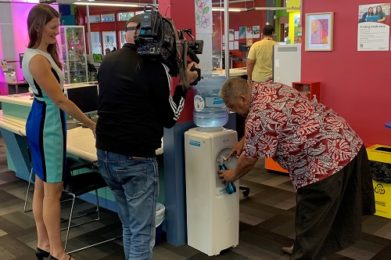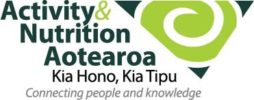28 Jan Wai Auckland taps into water as the cost effective, healthy thirst quencher
Here is the first in a four-part series showcasing the Wai Auckland project, an initiative led by Auckland Regional Public Health Service to promote tap water and side-line sugary drinks. In this issue, we hear how the project came about.
Sugary drinks are one of the most marketed and available food or drink categories in New Zealand, despite providing little or no nutritional benefit.
“They’re available everywhere,” says Wai Auckland project manager and NZ registered nutritionist, Amanda Brien. “From supermarkets, service stations and even hardware stores, to vending machines; they’re ubiquitous.”

And Amanda says it’s not only the products themselves, but their branding that has high visibility.
“We see it plastered across dairies, emblazoned on sports uniforms and positioned in high profile locations where drink brands sponsor events.”
Yet time and again the evidence shows how harmful sugary drinks are to our oral and general health. They’re not great for the health of the planet either.
“They’re typically packaged in single-use plastic bottles that often find their way into our environment,” Amanda says. “And only a third are ever recycled.”
Birth of Wai Auckland
It’s against this backdrop that the idea for Wai Auckland was born in 2016. Responding to a challenge from Dr Lester Levy (the then-chair of the three Auckland region DHBs and Auckland Transport), Auckland Regional Public Health Service (ARPHS) started work to devise an innovative project that would make a difference to the region’s obesity levels.
“Things really kicked off in 2018,” Amanda says. “Auckland Council, Auckland Transport and Watercare all joined as project partners, and ARPHS took the lead role on behalf of the DHBs.”
Despite having complex elements, the core philosophy of the three-year project is simple: to make tap water the most convenient option for people – at the expense of sugary drinks.
“Tap water is already easy on the pocket, better for the planet and the best choice for people’s health, so our big focus is on making it more available to people wherever they are,” Amanda says.
Wai Auckland’s project partners are working together to improve infrastructure, advocate for sugary drink restrictions, and undertake research – all topics that will be explored later in this series.
Impact of COVID-19
Like so many things in 2020, the project took a hit thanks to COVID-19 and the Auckland drought, with water fountains being turned off to mitigate spread of the virus and conserve water.
“Nearly all ARPHS staff were redeployed to the pandemic response, which also put a brake on the project,” Amanda says. “It was a shame as we’d just started gaining momentum with some innovative research projects and primetime national TV coverage”.
But despite this, aspects of the project were able to continue and it’s hoped that the impetus will return in 2021.
“There’s really no argument or controversy about water as the best choice of drink, which is somewhat unusual in the nutrition world, and makes this a dream project to work on!”
Want to know more? Amanda Brien is happy to share her experience of setting up the Wai Auckland project; email her for more information.

